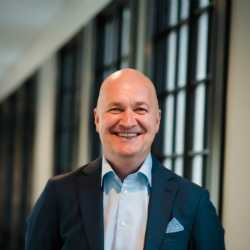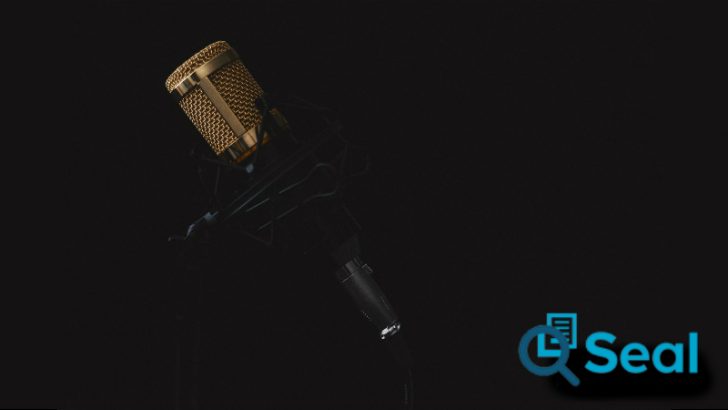
Ulf Zetterberg is the co-founder and CEO of Seal Software. The company was founded in 2010 and created a new market segment Contract Discovery and Analytics. He has more than 25 years in enterprise software and services and has held senior positions in several companies including OpenText, Proact and EMC.
Steve Brooks: Who is your inspiration and why?
Ulf Zetterberg: Today, it’s my family and my kids. One is at university right now, and one at the end of high school. It is my relationship with them, as they discover life, what drives them, being part of that is a big inspiration for me. It puts things into context on a daily basis, what am I doing and why am I doing it.
Steve Brooks: What are your personal challenges for the next twelve months?
Ulf Zetterberg: Scale and growth. We have reached critical mass, have a proven success and know there is more than one person that likes what we do. It’s a lot about hiring the right people. We made a couple of key hires in the last year. Making sure that they get fully up to speed, are fully integrated in the organisation and get on with it. We are people based even if it’s in technology. Finding the right people and continuing to get more good people on-board is key for success.
Steve Brooks: What was your darkest business day and how did you overcome it?
Ulf Zetterberg: Maybe this is going to sound strange, but my darkest business day was when I decided to resign as the co-founder and CEO for a Swedish publicly traded company in 1999.
I was doing something I was unhappy doing anymore. When you decide you have to leave something because you’re not happy anymore, but at the same time you still love all the people in the company, it was emotionally very sad. It felt very logical up to the day when I decided “I’m going to resign”. When I resigned, the days follow that were extremely empty and there were lots of regrets.
It was the right thing to do, but that was pretty horrible. I felt like a spoiled brat in one way, because this is something you should be happy about. It was mainly that I decided to leave all the people I work with so closely for so many years. That was tough.
Steve Brooks: What was your proudest moment?
Ulf Zetterberg: Seal’s first kick off, when we had 60 to 70 people together in one place sometime between 2012 and 2013. I shared it with Kevin, our CTO and my co-founder. We had a combination of lots of new people we hadn’t worked with before and those people we had worked with before. We created the Seal family and we had three great days together. I remember leaving that event feeling both extremely humble about the people that trusted to come and work with us, but also the atmosphere, and attitude.
Steve Brooks: Could you share a tip for CEOs who are also founders?
Ulf Zetterberg: Be yourself. If you have the right people around you, both on your board and management team, they don’t expect you to be Superman. They expect you to have certain qualities, of course, that makes you unique. That’s why you have started your company. It doesn’t mean you have to be good and an expert at everything. Be yourself, be open, admit that, and you will get help. Learn, and move forward. The number one thing is learn. It’s hard initially because I think I was the same.
The first time I had a very senior executive job, I put a high expectation on myself. You think everybody will expect you should know everything and do everything right the first time. You get quite a surprise when you realise that it’s not the case. People actually feel very positive and empowered when you share your questions admitting that you don’t know and ask for help.
Don’t try to be Superman.
Steve Brooks: What’s the latest business book you read or your favourite book or podcast?
Ulf Zetterberg: That’s a good one. I’m a big consumer of podcasts right now, more than reading books. This is one of the things I get a guilt trip about because I push my kids to read lots of books.
I’ve been trying to pull together everything that happens around machine learning, deep learning, and AI. I’ve been following MIT technology a lot lately, both their blogs as well as the podcasts. They tend to have a good perspective on technology and the applicability of technology. They don’t get too high on technology as the Holy Grail. Their latest was a very good one on blockchains applicability to certain industries.
Steve Brooks: How do you prioritise your day and how much time do you spend in different areas?
Ulf Zetterberg: I try to leave a third of my calendar quite free and open on a weekly basis. I wouldn’t say on a daily basis but weekly because there are things that just pop up. That’s probably something I learned from experience when you’ve been through this a couple times.
I’m spending one third with customers. I never, never want to minimise that. I would say that a third is building up the organisation. Helping the executive team, and the managers in the company to grow. Both personal coaching and brainstorming with them as well as helping us to fulfil and execute our plans.
Steve Brooks: What is the vision of Seal Software?
Ulf Zetterberg: When we founded Seal it was always about content. Our platform is content agnostic. Our first use case is contracts. I think we were positively surprised with how big the problem is, and maybe how many customers felt particularly that CLM and ECM hasn’t delivered on their promises.
Our vision is really to do content analytics, and the discovery of content. There are multiple content types, multiple use cases beyond contracts that we’re building for and that’s always been our vision.
Steve Brooks: You released UDML and Analyse This Now in 2016. What’s next?
Ulf Zetterberg: On UDML, we are doing version 2. It has been well received by customers and prospects. We can make it even simpler for non-data scientists to create their own data models using ML and deep learning, and building their own AI frameworks.
Usability is something we constantly pay more attention to. You can build advanced functionality but you have to make it extremely easy to use to get wide adoption of it. Also, integration to business applications or business systems, so it becomes more seamless to use Seal inside the enterprise. We also continue investing in the framework itself with UDML and building out those capabilities is key for us.
That’s really our main focus over the next 12 months. The other is that blockchain is coming more and more. It’s not just smart contracts. It is blockchain as an underlying technology. It will be used more and more so we have an eye on, and will leverage and utilise that. Customers are ready as well.
Steve Brooks: What’s the best and worst decision you’ve made as a CEO?
Ulf Zetterberg: To get a good board earlier rather than later. People with operational experience versus bankers has been the best decision we ever did at Seal. That helped us tremendously. That’s something I advise when people ask me. You get lots of good experience.
Worst, I don’t know want to name names, but there are probably some personal changes that I feel I had the gut feeling that it wouldn’t work. For some reason I didn’t listen to my inner voice and I took too long making the change.
Sometimes your gut feeling is very important in your emotional leadership. When you have managers that don’t 100% represent what you think, but they’re good or had a good track record before. You want to give them a second chance, or somebody pitched hard to get you to give them a second chance. I would say I’ve had two or three of those where I know I should have listened to my gut and had the difficult conversation earlier. It would have been beneficial to both parties as well.
Steve Brooks: What are your untapped markets?
Ulf Zetterberg: There are many. We see tremendous growth and interest in new verticals that we have been toeing a little bit in. Healthcare, as well as insurance. I think insurance is just a little bit behind financial services. Regulations tech, is something I think is going to hit the insurance market more than anything else. We have continued to be very strong in financial services, high tech, pharma and. healthcare. Insurance is clearly big opportunity for us in 2017 and 2018.
Steve Brooks: What about international markets?
Ulf Zetterberg: Today we do the whole of Europe. We do northern Europe, UK, Germany, the US and North America. The last real big market for us to get into is Asia Pacific. That’s something we are talking about right now. I think we want to do it end of 2017 but I think it’s more realistic to do it in early 2018.
Steve Brooks: What does the competitive threat landscape look like?
Ulf Zetterberg: When we started out in 2010 nobody talked about contract discovery, contract analytics, or content analytics. Now there’s tonnes of players that use our thing. I tell people internally or externally that’s the ultimate proof that we do something that matters. It resonates with the customers. it resonates with the market and that feeds competition.
We are in the second phase with, AI, ML, and deep learning. There is a bit of disillusionment by some customers who realise this is not the Holy Grail. What we still see and lots of people misunderstand; is that it is about the data quality and getting access to data content. That has a higher priority than the data models you build. If you feed and train the system with the wrong data, you’re going to get bad results. There’s an underestimation for many in the market around how important that is.
It’s not just about having the smartest, or coolest algorithm, but: “What are you going to feed this with?”. Who determines what’s good or bad content?
Steve Brooks: That’s been common sense for a long time surely. If you put bad data in you get bad information out. It’s always been that way.
Ulf Zetterberg: But if you look at ML and AI right now, I would say that’s a question that very rarely gets asked. Where did you get the data for the models. The data also changes in value over time. That’s also something that should be common sense, but many applications have a very traditional storage function. They never change the value of attributes or storage.
Something that was stored with certain tags or values three years ago, has a different value for the business today, but it hasn’t changed in the application. So how do you deal with content that is more agile than ever? Most companies are struggling with search big time, just finding the stuff.
Steve Brooks: How do you see the company changing in two years, and how do you see yourself creating the change?
Ulf Zetterberg: One of my biggest things will be to try and maintain the culture we have and keep everything together.
When you’re 50 people and grow 100%, you add another 50 people and you can still know who they are. When you’re 200 people and growing 100%, you’re adding 200 people. Now you’re starting to very easily dilute the core value system you have in your culture.
My biggest thing, and the thing we have to maintain as we continue to grow, is to keep everybody feeling that they are still a part of this Seal they joined. Making all the new team members feel that same excitement, and euphoria that early employees had.
Global expansion and our fast growth is always going to be a challenge to keep everything together. Making sure that everybody still feels at home, and everybody understands, and have the same belief in our core values, and our culture.
Steve Brooks: How do you approach maintaining culture as you rapidly grow?
Ulf Zetterberg: It’s communication, communication, communication. Every time you do a survey, I will say that most companies, even the best ones or the worst ones, communication comes up. You can never over communicate.
The best way to spread information very quickly and easily is to make it accessible.
That’s just everything from a monthly, all hands call, town halls meeting, newsletters, onboarding. Everything I have read around that, is about communication, communication, communication. Constantly touching everybody, keeping everybody up to speed and feeling that they are up to speed. If they know the latest and the greatest, nobody feels that they’re kind of forgotten or left in a corner somewhere.
Steve Brooks: What’s the next customer challenge you’re looking to solve?
Ulf Zetterberg: This is something Kevin and I talked about at length recently. How do you empower a customer to feel that they can easily leverage all the data they have and also allow them to go outside the box.
There’s not enough slack in the system to test new ideas and to test things that are really different. If somebody wants to transform a business, not just save another 5%, or add another 4%, most organisations are so lean and mean that there’s very little time and resources for that. If you have access to tools like Seal, analytical platforms, they make it easy to use and easier to do.
With our customers, it comes up a lot. I think everybody has ambitions, wants to be more transformative and drive change more. But, there are resource and time constraints. Every time they try to do something it turns into large projects, therefore it never gets funded and nobody gets time to do it.
Is there a way to help customers to do more scenarios? In our case you now have access to data that you didn’t have access to before. Will you be able to for instance, think about contracts? What if we change the structure of the contract? Will that change the outcome of the contract as well?
Steve Brooks: What are the key challenges faced by your industry?
Ulf Zetterberg: The hype cycle. We get so excited about our own stuff sometimes, and we miss why the customer is not equally excited. We’re still nerds. There are lots of things that we think are really cool, but it maybe doesn’t have that applicability, because it’s not easy to implement or it’s not mature enough.
We live through so many different hype cycles and it’s so easy to fall into this. An industry event can make you feel full of energy and stuff, and then you go to a more customer driven event, and you feel like there’s a big disconnect.
We constantly have to remind ourselves that all the things we do, have got to have a purpose. It’s got to do something and at the end of the day, there’s three or four things that been driving our industry for the 30 years I’ve been involved in it, automation, productivity and efficiency.
This is basic stuff, because eventually somebody is going to pay for it. I still feel that we kind of miss that sometimes. We get a little bit too excited about the technology piece. How cool it is versus that hard question of “How applicable is it?” What’s is the true value it delivers versus just being a piece of cool technology?
Steve Brooks What’s the one question you would like to ask another CEO to answer?
Ulf Zetterberg: The why question. Why you do what you do, both as an individual, as a leader, and the company. It’s the simplest and best question. Sometimes when I read about CEOs in big companies, it tends to get missed. Why did he do it? Why did he start the company? Why does it have a value to the customer?
I would probably say that for most entrepreneurs their success started because they had a crystal-clear answer to that why question. They saw something that was a well-defined problem.
Steve Brooks: Why are you doing this?
Ulf Zetterberg: I’m obsessed about content. When we started Seal it was delivering search. I think the source, in my case, was my eldest son.
He was Googling everything. iTunes was structuring his music and his records for him. He couldn’t understand why this was something I should help big companies with because it wasn’t a problem for him and he was 13 years old. Why would this be a problem for very sophisticated people that get good salaries?
The back end of the whole thing was the big data warehouse. The whole thing is where’s the golden nugget? Where’s the content that makes a difference? How do you get access to it?
The search and discoverability is what you need without relying on IT. Having that power in the user’s hand has led to much more. That’s still what our mission is when you boil it down. It’s like helping that individual business user to find what he or she needs without calling for resources.
I used to work with a really, really good marketer for a long, long time. He created a great slide many moons ago, that had a brain and a phone on it. It said “This is the enterprise search system.” You either know where you store something, or you call somebody you think knows where it’s stored. I think that’s still very telling.
There’s so much more data and content than ever. Some you own and some you don’t own, but you need access to both. How do you get that presented to you in an easy way without having to rely on third party, or a colleague?
Steve Brooks: Thank you.



























